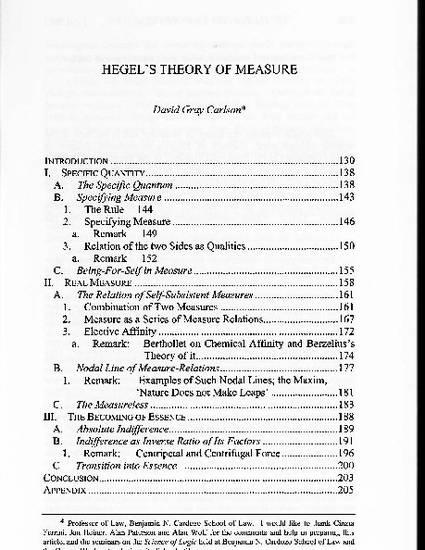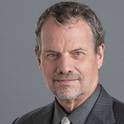
The final segment in Hegel's analysis of "being" is measure - the unity of quality and quantity. At stake in these chapters is the difference between quantitative and qualitative change. A being or thing is indifferent to quantitative change, which comes from the outside. For instance, a legislature can increase the stringency of zoning regulations, and yet the legislation is still constitutional "zoning." But there comes a point at which quantitative change effects a qualitative change - zoning becomes an uncompensated "taking" of property. This paper analyzes how Hegel, in the "Science of Logic," derives measure from the categories of quality and quantity, and how essence - the "beyond" of being/appearance is in turn derived. The paper is the third installment on a complete analysis of Hegel's most important (and least read) work - the Science of Logic (1831).
- Georg Hegel,
- Metaphysics,
- Jurisprudence
Available at: http://works.bepress.com/david_carlson/16/
